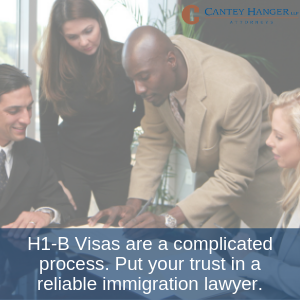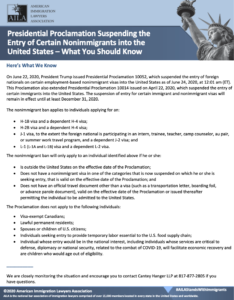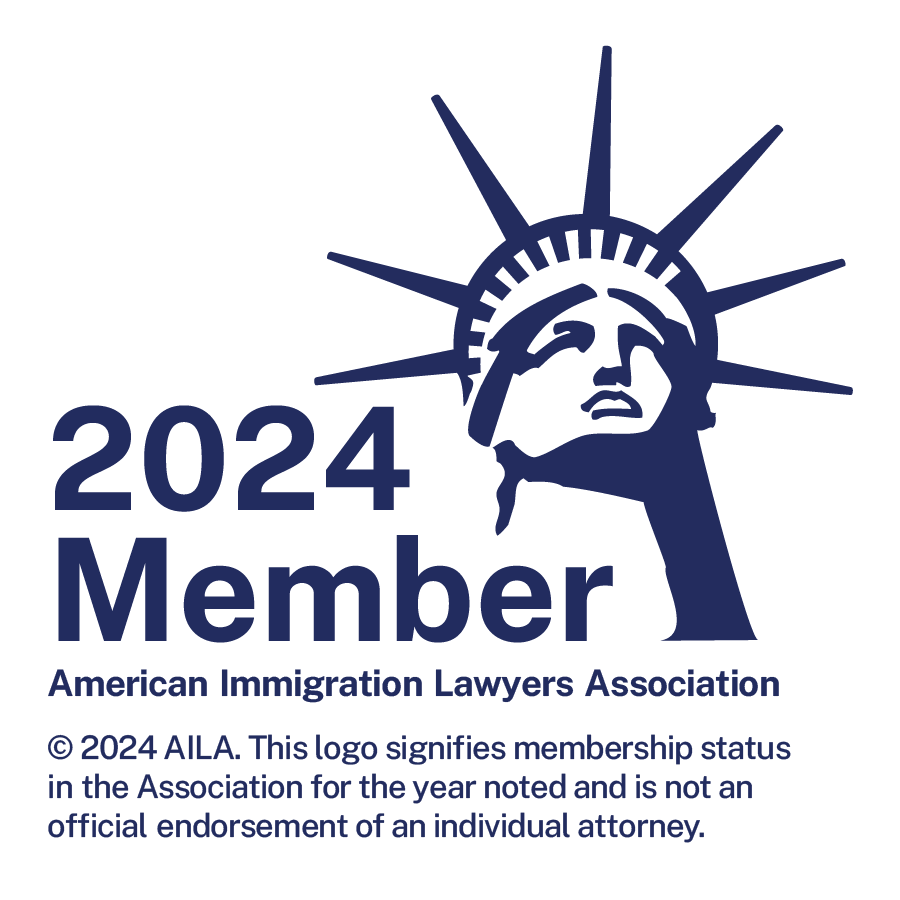Proclamation Suspending Entry of Certain Nonimmigrants.fact sheet
PRESIDENT TRUMP’S JUNE 22, 2020 PROCLAMATION
We are all aware that this proclamation suspends the entry into the U.S. of certain H-1B, H-2B, J and L nonimmigrants and their spouses and children.
There are few exceptions and they primarily focus on the national interest of the U.S. including providing medical care or medical research for COVID-19, providing services critical to defense or law enforcement, and providing services that facilitate the economic recovery of the U.S.
Be aware that this proclamation also instructs other actions to be taken to ensure that the presence in the U.S. of H-1B nonimmigrants and those seeking EB-2 or EB-3 benefits do not disadvantage U.S. workers. There are no details provided at this time as to what these actions may be, but speculation abounds that they could include an increase in Department of Labor audits of labor certifications and possibly re-testing of the market for labor certifications.
President Trump’s Proclamation effective June 24, 2020
The Proclamation suspending entry of nonimmigrants to the U.S. is effective June 24, 2020 at 12:01 AM ET and extends through December 31, 2020, subject to revisions and extension.
This Proclamation extends the earlier April 22, 2020 Proclamation suspending entry of certain immigrants into the U.S. through the end of the year as well.
The Proclamation affects the following nonimmigrant categories plus spouse & children: H-1B, H-2B, J and L.
It only applies to those individuals if they are:
· Outside of the U.S. on the effective date of the Proclamation;
· Do not have a nonimmigrant visa that is valid on the effective date of the Proclamation; and
· Do not have an official travel document other than a visa such as advance parole which is valid on the effective date of the Proclamation.
It is not clear if Canadian citizens who are not required to have a visa will be exempt from this Proclamation.
There are limited exemptions such as those seeking to enter the U.S. to provide temporary labor essential to the U.S. food supply chain, or those who are need to provide services in the national interest of the U.S. such as defense, medical care to COVID-19 patients, or essential to facilitate the immediate and continued economic recovery of the U.S.
This Proclamation does not affect those nonimmigrants already in the U.S.
__________
This office advises against international travel in the event further restrictions are placed on nonimmigrants.
H-1B CAP UPDATE
USCIS completed its H-1B CAP registration lottery and all of those employers with registrations selected in the lottery have been notified. USCIS announced that nearly 275,000 unique registrations were submitted during the initial registration period. Roughly 46% of all registrations were for prospective beneficiaries with U.S. advanced degrees. 275,000 registrations is more than three times the H-1B annual limit of 85,000. Nearly 81% of submitted registrations were for potential beneficiaries from India (67.7%) and China (13.2%).
H-1B Premium Processing Update
USCIS will be temporarily suspending Premium Processing for FY2021 Cap-Subject Petitions. Petitioners filing FY 2021 cap-subject H-1B petitions will not be able to request premium processing when USCIS begins accepting cap-subject petitions on April 1. Until premium processing resumes for FY 2021 cap-subject H-1B petitions, USCIS will reject any Form I-907 concurrently filed with a cap-subject H-1B Form I-129.
As USCIS has done in the past, premium processing will resume in a two-phased approach during the FY 2021 cap season so that USCIS can best manage premium processing requests.
USCIS will resume premium processing for FY 2021 cap-subject H-1B petitions requesting a change of status from F-1 nonimmigrant status no later than May 27, 2020, and will notify the public before premium processing resumes for these petitions.
The earliest date that USCIS will resume premium processing for all other FY 2021 cap-subject H-1B petitions is June 29, 2020.
Petitioners filing FY 2021 H-1B cap-subject petitions will be eligible to upgrade to premium processing by filing Form I-907 once premium processing resumes, as applicable. USCIS will notify the public with a confirmed date for resuming premium processing for FY 2021 H-1B cap-subject petitions.
At this time, premium processing remains available for H-1B petitions that are exempt from the cap, such as extension of stay requests.
USCIS To Implement H-1B Cap Online Registration System
U.S. Citizenship and Immigration Services (USCIS) has announced that it has completed testing of its new online H-1B registration system for the upcoming FY2021 cap season, with an initial registration period starting March 1, 2020.
Under this new process, employers seeking cap-subject H-1B workers, or their authorized representatives, will complete an initial registration process that requires basic information about the company and each requested worker, in addition to a $10 fee per applicant. This registration period will be held from March 1 through March 20, 2020. If the number of registrants meets the annual numerical cap for H-1B petitions, USCIS will run a random lottery on the pool of registrations no later than March 31, 2020. If the registration is selected in the lottery, Petitioners will then be eligible to file cap-subject H-1B petitions during a 90-day filing period on behalf of those beneficiaries.
USCIS is currently in the processing of posting instructions on its website and hosting webinars about this registration system.
If you need to file a cap subject petition, please contact Susan Lane for more information.
H-1B CAP SEASON – FY 2021
This year, USCIS will be utilizing an electronic registration requirement for H-1B cap subject petitions. USCIS will be providing additional information and instructions regarding the registration requirement, which will be online and will require a $10 registration fee for each case. USCIS will open the registration period from March 1, 2020 through March 20, 2020. The random selection lottery process will be run after the registration period, assuming USCIS receives more registrations than slots available. If selected, a 90 day period of time will be given during which the H-1B petition must be filed.
If you anticipate needing to file an H-1B cap subject petition this year, please contact Susan Lane immediately for more information.
“USCIS’ Denial Rates for H-1B Petitions Have Quadrupled”
Studies have shown that under the current administration, denials for H-1B petitions for new employees and continuing employees have quadrupled.
Learn more:
Guide to H-1B Visas
As an employer, you may be able to sponsor and hire a worker from another country thanks to the H-1B visa program. The program is designed to help companies find qualified help in highly specialized fields, such as finance and accounting, IT, science, architecture and more. Under the H-1B visa program, some employers qualify to hire foreign nationals who can work in the U.S. for a set period of time. For many companies, the process is easier with the help of an H-1B lawyer.
What is an H-1B Visa?
The U.S. government’s H-1B visa program allows employers to recruit and hire foreign workers when necessary. Not all employers qualify, though – these visas are only available to people in certain fields. U.S. Citizenship and Immigration Services defines these fields as “occupations that require the theoretical and practical application of a body of highly specialized knowledge and a bachelor’s degree or higher in the specific specialty, or its equivalent.”
There’s a cap on the number of H-1B visas that the government gives out each year, too.
The catch is that people can’t simply apply for an H-1B visa. Instead, a qualifying employer must apply on a candidate’s behalf – and the employer must have a current job opening for that specific candidate at the time of application.
Job Specifics for an H-1B Visa
Your company must have a job opening for the candidate you want to hire in order for you to petition the U.S. government for an H-1B visa on his or her behalf. The job that you have open has to meet these criteria:
- The job’s normal minimum entry requirement is to have a bachelor’s degree or its equivalent, or higher
- The job is so complex or unique that it can only be performed by a person with a degree, or the degree requirement for the job is standard in the industry
- You (the employer) usually require a degree or its equivalent to fill this position
Your H-1B visa lawyer can help you determine whether your company meets these criteria.
Requirements Your Candidate Must Meet to Qualify for an H-1B Visa
The person you wish to hire must also meet certain criteria in order to qualify for an H-1B visa. He or she must:
- Have a U.S. bachelor’s or higher degree that correlates with the job, and the degree must be from an accredited college or university
- Have an unrestricted state registration, or certification which authorizes the practice of the specialty occupation, and he or she must be engaged in that specialty in the state of intended employment
- Have the training, experience or education necessary to be considered equivalent to a degree in the same field
- Hold a foreign degree that’s equivalent to the one a person must have to perform the job you’re offering
If your candidate doesn’t meet all of these criteria, you can’t apply for an H-1B visa on his or her behalf. There is one exception, though, and it’s for fashion models.
When you want to hire a fashion model, you may be able to use this program. However, it’s only available when the position or services require a prominent model. USCIS says that the model you’re hiring has to be “a fashion model of distinguished merit and ability.” You can talk to your H-1B attorney to get more specific information if this applies to your situation.
Are There Enough H-1B Visas Available?
The government can change the number of these visas that it offers. Currently, the cap is set at 65,000 per year. However, USCIS has determined that an additional 20,000 people can come in under the program, provided that those people have earned a U.S. master’s degree or higher. After those 20,000 people are granted visas under the “advanced degree exemption,” the government won’t issue any additional H-1B visas until the following year.
Some employers don’t have to worry about the cap. They include:
- Institutions of higher learning
- Affiliates of colleges and universities
- Nonprofit organizations
- Nonprofit research organizations
- Government research organizations
Can Workers Sponsor Their Families Under H-1B Visas?
In many cases, H-1B visa recipients can bring their families to the U.S. with them. Family members can’t come under the same type of visa, though – they must come under the H-4 nonimmigrant visa program. This program is open to spouses and workers’ unmarried kids who are under the age of 21. The family members your candidate brings must also meet all the eligibility criteria necessary for entering the U.S. and be admissible to the country. Your candidate’s family members with H-4 nonimmigrant visas can stay as long as your candidate does.
What About Work or School for Family Members?
Most H-4 nonimmigrant visa recipients aren’t allowed to work while they’re in the U.S. However, some can file an application for employment authorization. Generally, H-4 family members are allowed to attend school here. If you have specific questions about your situation, your H-1B visa attorney can help you get the answers you need.
Federal Requirements for Sponsoring Workers on H-1B Visas
If you want to hire foreign workers to fill a specialty position in your company, you must:
- Notify your employees that you’re looking for H-1B nonimmigrants. Federal law requires you to do so.
- File a Labor Condition Application.
- File Form I-29 after your Labor Condition Application is approved.
What is a Labor Condition Application?
Commonly called an LCA, a labor condition application is one of the documents your H-1B visa lawyer has to file with the Employment and Training Administration under the Department of Labor. The Department of Labor must approve the application before you’re allowed to ask the government to bring in a foreign worker. The LCA includes an agreement that says you’ll maintain certain working conditions and that you’ve undertaken a good-faith effort to find U.S. employees.
How to Apply for an H-1B Visa for a Worker You Want to Hire

Because applying for an H-1B visa can be a complicated process, most companies choose to work with an H-1B visa attorney who understands the process.
We may be able to help you get the workers you need. Call us now to set up a consultation with an experienced, caring and committed H-1B visa lawyer – we’ll answer your questions and help you put your business on track to grow with the right employees.
H-1B CAP CASE NEWS
The Department of Homeland Security (DHS) today announced a notice of proposed rule-making that will require employers seeking to file H-1B cap-subject petitions to pay a $10 fee for each electronic registration they submit to USCIS. This is the new method to handle H-1B cap cases beginning in FY2021. If the case is selected in the lottery based on this registration system, the employer will then file the H-1B petition application in its entirety with USCIS. More information from DHS will be forthcoming.




